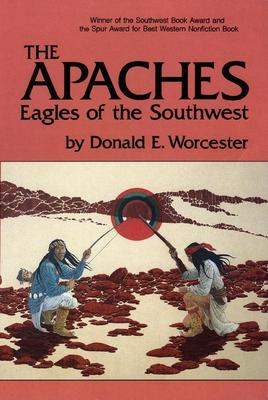Until now Apache history has been fragmented, offered in books dealing with specific bands or groups-the Mescaleros, Mimbreos, Chiricahuas, and the more distant Kiowa Apaches, Lipans, and Jicarillas. In this book, Donald E. Worcester synthesizes the total historical experience of the Apaches, from the post-Conquest Spanish era to the late twentieth century. In clear, fluent prose he focuses primarily on the nineteenth century, the era of the Apaches' sometimes splintered but always determined resistance to the white intruders. They were never a numerous tribe, but, in their daring and skill as commando-like raiders, they well deserved the name "Eagles of the Southwest."
The book highlights the many defensive stands and the brilliant assaults the Apaches made on their enemies. The only effective strategy against them was to divide and conquer, and the Spaniards (and after them the Anglo-Americans) employed it extensively, using renegade Indians as scouts, feeding traveling bands, and trading with them at their presidios and missions. When the Mexican Revolution disrupted this pattern in 1810, the Apaches again turned to raiding, and the Apache wars that erupted with the arrival of the Anglo-Americans constitute some of the most sensational chapters in America's military annals.
The author describes the Apaches' life today on the Arizona and New Mexico reservations, where they manage to preserve some of the traditional ceremonies, while trying to provide livelihoods for all their people. The Apaches still have a proud history in their struggles against overwhelming odds of numbers and weaponry. Worcester here re-creates that history in all its color and drama.
